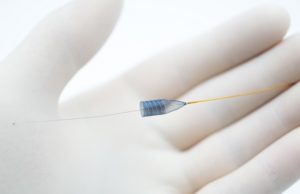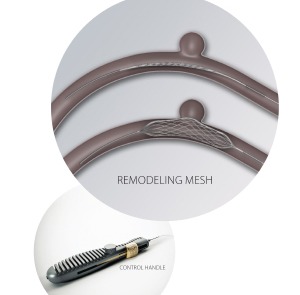Tag: Journal of NeuroInterventional Surgery
Large prospective study demonstrates high efficacy and low mortality rates with...
The Diversion-p64 study—the largest prospective study using the p64 flow modulation device (phenox) to date—has demonstrated that the device has a high level of...
“Welcome and exciting”: Evidence mounts in favour of flow diversion technologies
Multiple pieces of clinical research supporting the use of flow diverter devices to treat intracranial aneurysms have come to light so far in 2021....
FRED flow diverter safe and effective in treatment of “appropriately selected”...
The Flow Redirection Endoluminal Device stent system (FRED; MicroVention)—a flow diverter used to treat intracranial aneurysms—has been deemed safe and effective for this indication,...
Synchron given green light to begin US study of endovascular brain-computer...
The Stentrode motor neuroprosthesis, developed by Synchron, has taken another step towards becoming the world’s first commercially available, endovascular brain-computer interface (BCI) technology after...
Clot permeability linked to first-attempt success of aspiration thrombectomy
A multicentre study has reported that clot perviousness or permeability, the ability for contrast used during the initial imaging workup to seep through a...
TRAIL multicentre study finds LVIS devices safe and effective in aneurysm...
The TRAIL multicentre study has found that the LVIS (Low Profile Visualized Intraluminal Support) and LVIS Jr devices (MicroVention) are safe and effective for...
Rapid Medical device proves promising for safely supporting aneurysm coiling occlusion
The Comaneci device from Rapid Medical offers a promising and reliable way of safely supporting aneurysm coiling occlusion, even in a rupture environment. That is...








